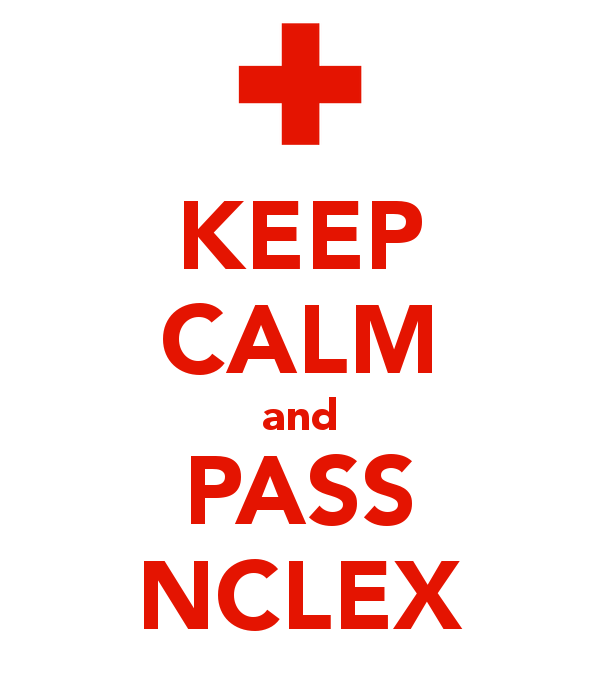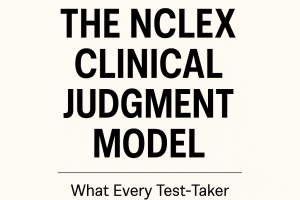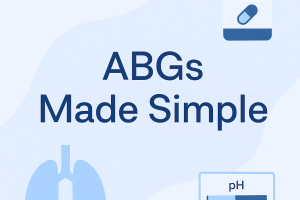Does the NCLEX Get Harder If You’re Doing Well? Myth vs. Reality

The NCLEX is different from any other exam you’ve taken. One of the most common questions test-takers ask is:
“Does the NCLEX get harder if I’m doing well?”
You might hear from past test-takers that if your questions start feeling more difficult, it means you’re performing well. But is this really true?
Let’s break down this myth vs. reality to help you understand how the NCLEX works and what to expect on exam day.
Understanding the NCLEX: A Computer-Adaptive Test (CAT)
The NCLEX is not like a traditional test where you answer a set number of questions and get a percentage score. Instead, it uses a computer-adaptive testing (CAT) format.
How CAT Works:
✅ The NCLEX starts with a medium-difficulty question.
✅ If you answer correctly, the computer gives you a slightly harder question.
✅ If you answer incorrectly, the computer gives you an easier question.
✅ This process continues until the algorithm determines your ability level.
This means that every test-taker will face a different set of questions based on their performance.
Myth vs. Reality: Does the NCLEX Get Harder If You’re Doing Well?
Myth:
“If my NCLEX questions are getting more difficult, I must be passing.”
Reality:
✅ The NCLEX adjusts based on your performance, but harder questions do not guarantee that you are passing.
✅ The goal of CAT is to find the level of difficulty where you are answering 50% correctly and 50% incorrectly.
✅ This means you may feel like you’re struggling, but that doesn’t necessarily mean you’re failing—it means the test is measuring your ability level accurately.
What This Means for You:
- If your questions seem easy, it might mean you are getting lower-level questions due to incorrect answers.
- If your questions seem difficult, it could mean you are above the passing standard—but it also means you are getting challenging questions designed to test your limits.
- Your goal is to stay at or above the passing standard, not just to get harder questions.
Signs You’re Performing Well on the NCLEX
Since the NCLEX doesn’t give you a score mid-exam, here are some potential signs that you are doing well:
✅ You are getting priority questions (e.g., “Which patient should the nurse see first?”).
✅ You are seeing a lot of select-all-that-apply (SATA) questions.
✅ You are encountering higher-level application and analysis questions rather than simple recall questions.
However, these are not guaranteed indicators, as the test adapts to each candidate differently.
Does the Number of Questions You Get Matter?
The NCLEX-RN can have a minimum of 85 questions and a maximum of 150 (as of 2023 changes). Your exam can stop at any point once the system determines whether you are above or below the passing standard.
What It Means If Your Exam Stops Early:
✅ At 85 questions: You either did very well and passed, or struggled early and did not pass.
✅ At 150 questions: The computer used all available questions to measure your ability. You may still pass or fail—it just means your ability level was close to the passing standard.
How to Stay Confident During the NCLEX
Since harder questions don’t always mean you are passing, the best strategy is to:
✔ Focus on one question at a time. Don’t overanalyze difficulty levels.
✔ Avoid second-guessing yourself. Stick with your first instinct unless you’re sure of a mistake.
✔ Stay calm if you see many SATA questions. It might be a good sign.
✔ Use critical thinking skills. The NCLEX tests how you apply knowledge, not just memorization.
Final Thoughts
The NCLEX is designed to challenge you, but don’t panic if your questions feel harder—this is how the test works. Instead of trying to guess whether you’re passing, focus on applying nursing knowledge and answering each question carefully.
Have you taken the NCLEX or are you preparing for it? Let us know your thoughts in the comments!






